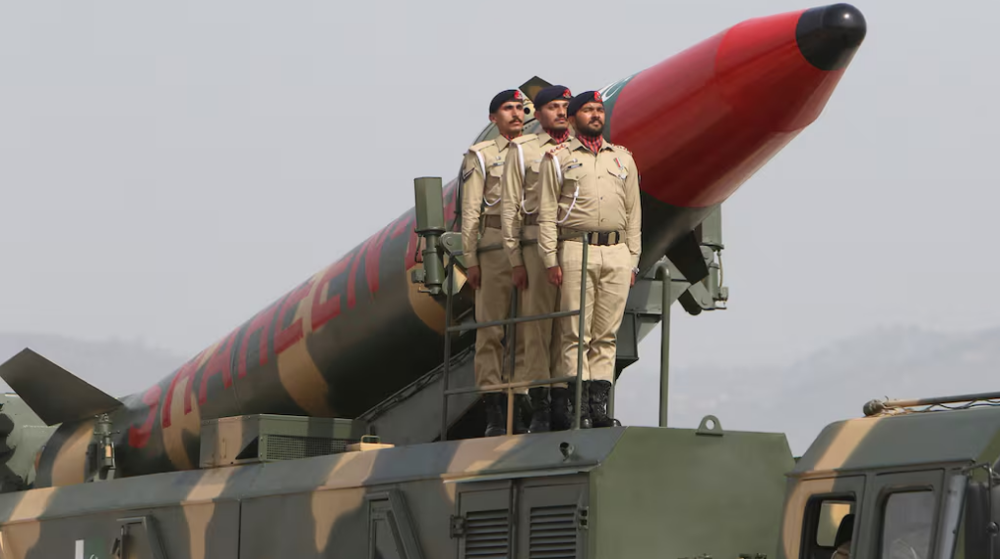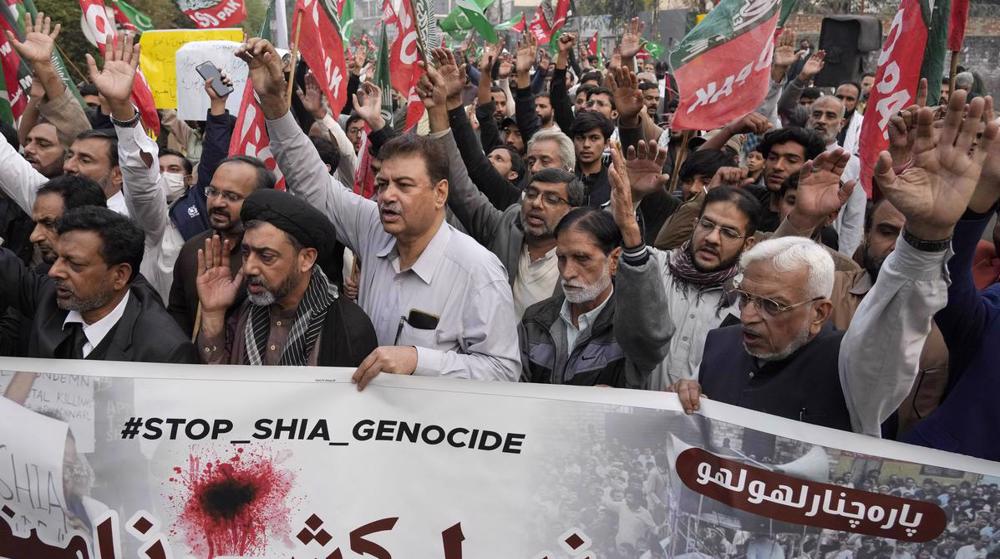Pakistan remands alleged mastermind of Mumbai attacks for 14 days
A court in Pakistan has remanded to custody a terror suspect accused of masterminding a four-day attack on India’s financial capital, Mumbai, in 2008, his lawyer says.
Imran Fazal said on Wednesday that an anti-terrorism court in central Pakistan remanded Hafiz Saeed to custody for 14 days while counter-terrorism officials complete investigations.
This came after a hearing following his arrest last week on terrorism financing charges. Saeed was taken into custody in Punjab province on July 17 while he was traveling from eastern city of Lahore to the town of Gujranwala.
Reacting to the detention, Ujjwal Nikam, India’s special public prosecutor in the 26/11 Mumbai terror attack case, had called Saeed’s arrest “a drama.”
“Pakistan is fooling the world that they have arrested him, we have to see how they produce evidence in courts and how efforts are made to convict him, otherwise it is a drama,” he said.
An Indian government official, who has close knowledge of diplomatic issues with Pakistan, earlier told The Guardian newspaper that arresting Saeed was not enough and that he should be put on trial and convicted.
“We want real action, not these kinds of steps that are reversible. One court orders his arrest, another frees him,” said the official.
Saeed is the founder of Lashkar-e-Taiba (LeT), the militant group blamed by India for the Mumbai attacks, which killed more than 160 people and injured hundreds of others.
Pakistan banned Saeed’s charities earlier this year and detained him, along with several close aides. However, he has not been charged or put on trial so far.
In 2017, Saeed was put under house arrest by Pakistani authorities and subsequently released after being cleared of charges against him, drawing strong criticism from New Delhi.
LeT is known for attacking Indian security forces and government targets.
Saeed, however, has denied any involvement in the Mumbai attacks, saying he has no ties to militant groups.
Until the terror financing case, Saeed had for months lived freely in Pakistan, often addressing anti-India rallies for which he became popular amid a dramatic confrontation between the two nuclear-armed neighbors earlier this year.
Israel admits assassinating Hamas leader, vows to inflict same fate on Yemeni fighters, people
VIDEO | Yemeni forces repel US-British attack, down F-18 Jet
Iran’s capabilities vast; enemy’s ‘maximum pressure’ policies all failed miserably: Senior official
Iran’s economy grew 2.7% y/y in Sep quarter: CBI
VIDEO | Freelancers in Gaza strive to stay online amid genocide
Mikati demands Israel's withdrawal from south Lebanon
Yemeni army strikes Israeli military sites with drones
‘Clock ticking’: UNRWA slams unjustifiable killing of children in Gaza











 This makes it easy to access the Press TV website
This makes it easy to access the Press TV website